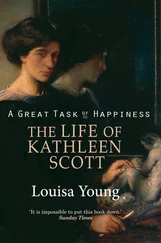Ekaite looked at the containers of creams on my bed.
Mama chuckled uncomfortably. ‘Oya ga-wa,’ she said. Well, go ahead.
Ekaite walked to my dresser. The drawers slid open and closed. Empty-handed now, she walked back towards the door.
Mama chuckled again and said, ‘Uzoamaka here will soon be fair like you.’
Ekaite nodded. ‘Yes, Ma.’ There was a confused look on her face.
Mama cleared her throat. ‘Fair like me, too.’
Ekaite nodded again. Then she turned to Mama. ‘Odi kwa mma otu odi.’ She’s fine the way she is.
Mama shook her head. ‘Oya ga-wa! Osiso, osiso.’
The door clicked closed.
I tell Mama that I’m not feeling well. An upset stomach. I excuse myself from the table before she has a chance to respond.
I carry my dishes into the kitchen, where Eno is waiting for me. Ekaite sits on a stool close to the floor. I feel her eyes on me and on Eno.
Inside the bathroom, the air is humid and smells clean, purified, a chemical kind of fresh. There is no lock on the door, but we make sure to close it behind us.
Eno holds the towel and stands back, but I call her to me, because I am again finding myself sceptical of the water and of the bleach. In my imagination, I see Clara’s suspicious eyes, and I hear Boma’s disbelieving laugh. Fear catches me, and I think perhaps we should not bother, perhaps we should just pour everything out. But then I hear Mama’s voice, saying, ‘Foolish Eno. Dummy Eno.’ I take the towel from Eno. ‘You should go first,’ I say. It is a deceitful reason that I give, but it is also true: ‘Because you’re not supposed to be here. That way you’ll be already done by the time anyone comes to chase you out.’
Eno nods. She concedes straight away.
She gets on her knees, bends her body over the wall of the bathtub so that her upper half hangs horizontally above the tub, so that her face is just above the bucket.
‘We’ll do only the face today,’ I say. ‘Dip it in until you feel something like a tingle.’
She dips her face into the water. She stays that way for some time, holding her breath. Even if I’m not the one with my face submerged, it is hard for me to breathe.
Eno lifts up her face. ‘My back is starting to ache, and I don’t feel anything.’
‘You have to do it for longer,’ I say. ‘Stand up, stretch your back. But you have to try to stay longer.’
Eno stands up. She lifts her hands above her head in a stretch. She gets back down on her knees, places her face into the bucket again.
‘Only get up when you feel the tingling,’ I say.
Time passes.
‘Do you feel it yet?’
The back of Eno’s head moves from side to side, a shake with her face still in the water.
More time passes.
‘Not yet?’
The back of Eno’s head moves again from side to side.
‘Okay. Come up.’
She lifts her face from the water first. She stands up. The colour of her skin seems softer to the eyes, just a little lighter than before. I smile at her. ‘It’s working,’ I say. ‘But we need to go full force.’
‘Okay,’ she says. ‘Good.’ She watches as I pour the liquid from the bucket into the tub. We both watch as the water drains; we listen as it gurgles down the pipe. I take the bucket out of the tub, place it in a corner of the bathroom by the sink. The bath bowl is sitting in the sink. I pick it up, hold it above the tub, pour the bleach straight into it. I get down on my knees, call Eno to my side, tell her to place her face into the bowl. She does.
Only a little time passes, and then she screams, and her scream fills the bathroom, saturates every tiny bit of the room, and I am dizzy with it. Then there is the thud and splash of the bowl in the tub, then there is the thud of the door slamming into the wall. Ekaite rushes towards us, sees that it is Eno who is in pain. She reaches her hands out to Eno, holds Eno’s face in her palms. Eno screams, twists her face. Her cheeks contort as if she is sucking in air. She screams and screams. I feel the pain in my own face. Ekaite looks as if she feels it too, and for a moment I think I see tears forming in her eyes. Papa looms in the doorway, then enters the bathroom. He looks fiercely at me. He asks, ‘What did you do to her? What did you do?’ In the doorway, I see Mama just watching, her eyes flicking this way and that.
‘What did you do?’ Papa asks again. I turn to him, pleading, wanting desperately to make my case, but I don’t find the words. I turn to Mama. I beg her to explain. She looks blankly at me, a little confusion in her eyes. I stand in the middle of them, frozen with something like fear, something not quite.
By then, even Emmanuel has made his way into the house, abandoning his post at the gate. He stands just behind Mama, and his peering eyes seem to ask me that same question: What did you do?
My legs feel weak. I turn to Eno, I smile at her. I think of Mama and her creams. ‘Don’t worry,’ I say. ‘We’ll find something that works.’ Eno continues to scream. I blink my eyes as if to blink myself awake.
Days later, when the scabs start to form, I imagine peeling them off like the hard shell of a velvet tamarind. Eno’s flesh underneath the scabs is the reddish-yellow of the tamarind’s pulp, not quite the yellow of a ripe pawpaw peel. And even if I know that this scabby fairness of hers is borne of injury, a temporary fairness of skinless flesh, patchy, and ugly in its patchiness, I think how close she has come to having skin like Onyechi’s, and I feel something like envy in me, because what she has wound up with is fairness after all. Fairness, if only for a while.
It was a story that Nneoma had told three times before, each time in the church on Rumuola Road. The church was not the same one that she attended as a child — not that small one out in the village, with hardly more than a dozen benches in it. Not that old one where she used to sit, a long time ago, worshipping alongside her parents. (Her parents had hoped that she’d one day get married in that village church, but it was now evident that Nneoma’s was a life that refused to converge with hopes. Her only consolation was that at least she’d tried. This failure of her life to merge with her parents’ hopes, of it to merge with even her own hopes, was clearly not any fault of hers. She reasoned it this way, as if that settled it.)
The church was round and two storeys high. Just like a wedding cake, Nneoma often thought. It was true: just like a wedding cake, its top layer was a smaller circle than its bottom. And the two cases of stairs that ran along the exterior walls, connecting the top and bottom storeys, were a little like the cake’s decoration. Icing in the shape of stairs.
Being a city church, it was large. Inside the main hall, benches stood in circular formation so that they appeared to radiate from the middle, like a wave whose centre was the pulpit. Here and there, between the benches, metal floor fans also stood, oscillating and buzzing negligibly from their posts. Even with the fans, it was warm inside the church.
It was on those benches, and in that warmth, that Nneoma told the story. She told it in bits, in the breaks before and after and during the service. She made sure to tell it only to visiting women, because the sudden absence of a regular member would surely be noted by the pastor, and by the congregation as a whole.
The last time she told the story — two and a half, nearly three years ago — it was to a visiting woman that she told it. The woman was very pretty, with high cheekbones, much like Nneoma’s own. The woman had sharp, penetrating eyes: she might have suspected all along. Or perhaps she had not suspected. Perhaps she was just that kind of woman: sharp, but merely on the superficial level — sharp eyes, sharp jaw, a very sharp fashion sense.
Читать дальше












